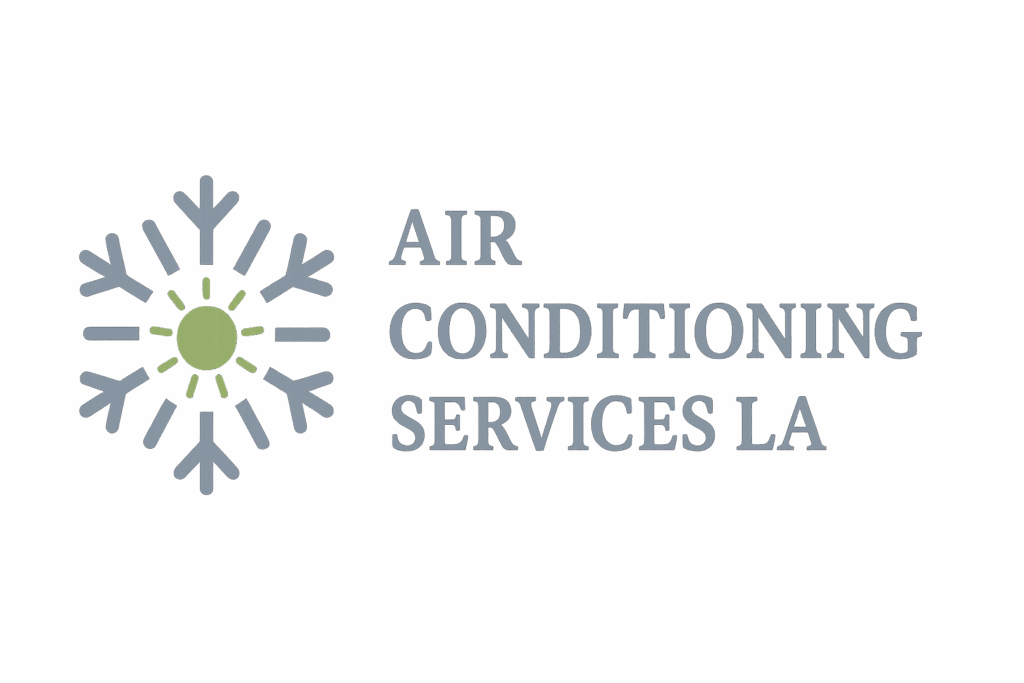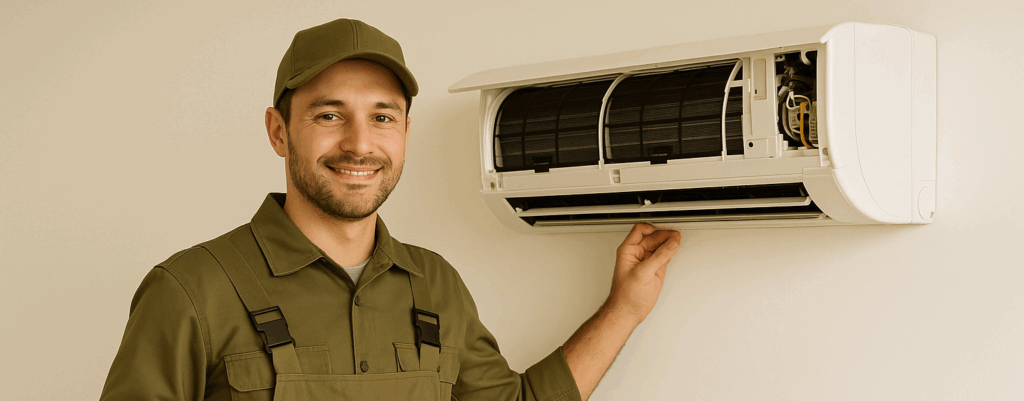Owning an air conditioner means more than just enjoying cool air during hot days—it also means taking care of the system to ensure it stays efficient and reliable for years to come. Whether you’re a new homeowner or someone who just had an AC system installed, knowing how to maintain it annually can save you money, energy, and unexpected breakdowns. Here are some essential air conditioning tips for beginners to help you keep your cooling system in top shape all year long.
Schedule Professional Maintenance at Least Once a Year
One of the most important steps every homeowner should take is to schedule professional AC maintenance annually. A qualified HVAC technician can perform a full inspection, clean the coils, check refrigerant levels, tighten electrical connections, and ensure every component is working efficiently. Annual maintenance not only helps your air conditioner last longer but also keeps your energy bills manageable. Most experts recommend scheduling maintenance in the spring before the heavy summer usage begins.
Replace or Clean Air Filters Regularly
Dirty air filters are one of the main reasons for poor AC performance. Clogged filters restrict airflow, making your system work harder to cool your home. This can lead to higher energy bills and even damage to the compressor over time. For most households, air filters should be replaced or cleaned every 1–3 months, depending on your home’s air quality, whether you have pets, or if anyone in your family has allergies. Always check the manufacturer’s recommendations for your specific unit.
Keep the Outdoor Unit Clean and Clear
Your outdoor condenser unit needs space and airflow to operate efficiently. Over time, dirt, leaves, and debris can collect around or inside it. At least once a year preferably before summer—inspect the area around the outdoor unit. Trim back shrubs or plants to keep a 2-foot clearance and gently hose down the fins to remove built-up dirt. Make sure to turn off the power to the unit before cleaning to avoid accidents.
Check and Clean the Condensate Drain Line
The condensate drain line removes the moisture that your air conditioner extracts from indoor air. Over time, algae or mold can clog this line, leading to water leaks or musty odors. To prevent this, pour a cup of white vinegar or a diluted bleach solution down the drain line every few months. This simple maintenance task can help prevent costly water damage and mold issues inside your home.
Inspect and Seal Air Ducts
Leaky ducts can cause your air conditioner to lose cool air before it even reaches your living space. This not only wastes energy but also makes your system work harder. Check your ductwork for visible gaps, tears, or loose connections. You can use aluminum foil tape or mastic sealant to close small leaks, but for a complete inspection and repair, it’s best to call a professional HVAC technician. Properly sealed ducts can improve efficiency by up to 20%.
Test the Thermostat
Your thermostat plays a vital role in controlling temperature and energy use. Each year, test your thermostat’s accuracy by comparing its reading to another indoor thermometer. If you notice a difference, recalibrate or replace the thermostat. Upgrading to a programmable or smart thermostat is also a great idea—it helps maintain consistent temperatures and saves energy by adjusting automatically when you’re not home.
Inspect Electrical Components and Connections
Electrical connections can loosen over time due to vibrations and normal wear. Loose or damaged connections can cause system failures or even pose a fire risk. Turn off the power to your air conditioner and inspect visible wires and connections. Look for any corrosion, fraying, or discoloration. However, unless you’re trained, avoid handling electrical parts yourself. Always call a licensed HVAC technician to safely check and repair electrical issues during your annual maintenance visit.
Clean Air Vents and Registers
Over the course of the year, dust and debris can accumulate in your vents and registers, restricting airflow and reducing efficiency. Once or twice a year, remove vent covers and clean them with warm, soapy water. Vacuum the ducts as far as you can reach. Keeping these areas clean improves air quality and helps your air conditioner distribute cool air evenly throughout your home.
Check for Unusual Noises or Smells
Strange noises—like grinding, rattling, or squealing can indicate that parts inside your air conditioner need attention. Likewise, unpleasant odors might suggest mold growth, electrical issues, or refrigerant leaks. Don’t ignore these warning signs. Addressing them early can prevent larger problems and extend the lifespan of your air conditioner. If something doesn’t sound or smell right, contact your HVAC professional immediately.
Improve Home Insulation
Good insulation helps your air conditioner work more efficiently by keeping cool air inside and hot air out. Inspect your attic, windows, and doors for gaps or leaks. Use weatherstripping or caulk to seal them, and consider upgrading to double-pane windows if possible. When your home retains cool air effectively, your AC doesn’t have to work as hard—leading to lower energy costs and longer equipment life.
Maintain a Consistent Temperature Setting
Constantly changing your thermostat setting can make your air conditioner cycle on and off more frequently, which causes wear and tear. Set a consistent, comfortable temperature – ideally between 24°C and 26°C (75°F to 78°F)—and use fans to help circulate air. This not only maintains comfort but also reduces strain on your AC system.
Prepare for the Off-Season
When summer ends and you no longer use your air conditioner regularly, take a few steps to protect it during the off-season. Clean the outdoor unit, cover it to prevent debris buildup, and turn off the power supply if recommended by your manufacturer. Performing these steps before winter ensures your air conditioner is ready to go when the next warm season arrives.
Maintaining your air conditioner doesn’t have to be complicated—especially if you follow these annual tips. By scheduling regular maintenance, cleaning key components, sealing air leaks, and monitoring performance, you can keep your AC system running smoothly and efficiently for years. Remember, prevention is always better than repair. With just a little effort each year, you’ll enjoy reliable cooling, lower energy bills, and a longer-lasting air conditioner.
Do not forget: Schedule your annual air conditioning maintenance before summer begins to ensure your home stays cool, comfortable, and energy-efficient all season long.

